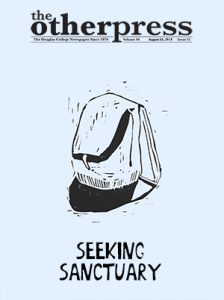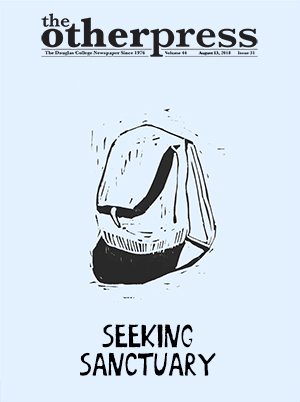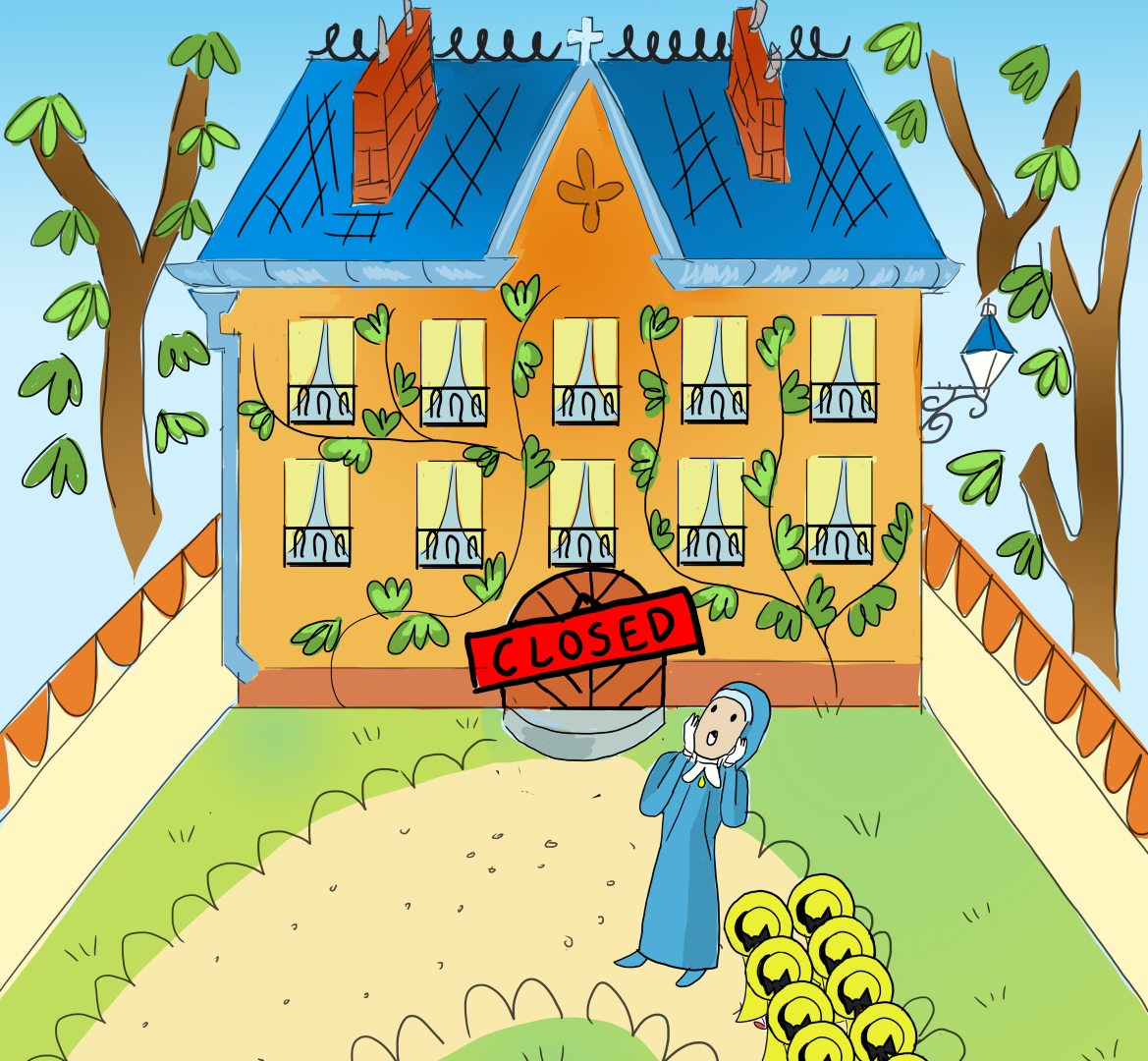
Is Vancouver doing enough to aid refugees and undocumented immigrants?
By Bex Peterson, Assistant Editor
When Justin Trudeau ran for office in 2015, one of his major platforms was an open-arms approach to immigration. Liberals roundly condemned the Harper Government’s controversial Bill C-24, which allowed the government to revoke citizenship for dual citizens and those eligible for dual citizenship if the citizens in question were convicted of terrorism, treason, espionage, and other betrayals of Canadian trust. They also pledged to receive an ambitious 25,000 Syrian refugees over the next year.
“A Canadian is a Canadian is a Canadian,” said Trudeau in a debate that year.
The subject of immigration and refugee support is as relevant and hotly contested now as it was in 2015, if not more so, due in no small part to the rise of a demagogue with a frighteningly anti-immigration stance in the US. Images of children in cages and families ripped apart at the southern US border have been a staple of the 24-hour news cycle for the past several months. According to the CBC at a press conference in June, Public Safety Minister Ralph Goodale said of the crisis, “Obviously, anyone looking at the human images would be very, very concerned.”
Frank Cohn, Executive Director of VAST (Vancouver Association for the Survivors of Torture), has seen the impact these policies and the culture surrounding them has had on migrants and refugees.
“We have a significant increase in people coming here from the United States, and a significant increase in people coming here who would be going to the United States,” said Cohn in a phone interview with the Other Press. “It’s not necessarily a specific policy that drives people away, it’s a change of environment. There’s a change in culture in the US where a lot of really aggressive, violent discrimination has been emboldened, and where people living in small towns around the US as immigrants and as undocumented immigrants began to feel uncomfortable. Even on the streets of New York City, people have described that the attitudes towards them and their lives have changed with the new administration and the general culture around xenophobia.”
He also cited the removal of DACA (Deferred Action for Childhood Arrivals) and the Temporary Protected Status designation for Haiti as having a direct impact on migration to Canada.
“We see a lot more Central Americans coming here,” he said, “and Quebec sees a lot more Haitians.”
With the horrific images coming out of the US and the persistent threat of a fully-implemented “Muslim ban,” Canada would appear to be a far better, safer option. In a tweet last January, Trudeau restated his dedication to an open-arms policy in response to Trump’s ban:
“To those fleeing persecution, terror & war, Canadians will welcome you, regardless of your faith.”
That same year the Liberals implemented Bill C-6, which repealed portions of C-24, though not all of it.
Unfortunately, political promises on both a federal and even a municipal level do not seem to match with political action. According to a report by the CBC in 2016, before C-24 was adjusted, the Trudeau government employed it to revoke citizenship at a “much higher rate” than the Conservative government ever did. Between November 2015 and August 2016, the government used the law to make 184 revocation decisions without legal hearings, with most of these decisions resulting in a loss of citizenship.
“The Liberals criticized these provisions when they were in opposition,” Laura Track of the BC Civil Liberties Association told the CBC that year. “They said they were going to fix it. And yet they have been using it even more than the Conservatives did.”
The City of Vancouver has also done some flip-flopping on the subject of immigration, specifically regarding the city’s potential status as a “sanctuary city.” Though the City put forward and adopted an “Access Without Fear” policy for undocumented immigrants in 2016, hoping to encourage access to municipal resources for those without documentation, Councillor Geoff Meggs was candid in his insistence that Vancouver should not be counted as a sanctuary city while speaking with the Early Edition on CBC Radio in 2017.
“We felt, and this is what the settlement and newcomer services said as well, that we should not oversell what is happening,” he said, explaining that the city’s hands were often tied by federal law.
Even the “Access Without Fear” policy has been largely criticized by advocates for asylum seekers and undocumented immigrants, especially after the policy was adopted by the Vancouver Police Department this past July. In a press release, Alejandra Lopez Bravo, a member of Sanctuary Health, condemned the new guidelines put forward by the VPD.
“The Vancouver Police Department should not claim to provide ‘Access Without Fear,’ if it continues to be complicit in the detention of children, the separation of families, and the deportation of people to countries where they will face violence and persecution,” she said in the statement. “If you collaborate with Canada Border Services Agency (CBSA), you’re not providing ‘Access Without Fear’.”
The shadow of the CBSA looms large over the Lower Mainland whenever the status of undocumented immigrants here is discussed. The Metro Vancouver Transit Police especially have gained a sort of infamy over the past decade or so for their previous policy of collaboration with the CBSA, a policy which resulted in the suicide of a Mexican migrant in a CBSA holding cell after she was detained by the Transit Police following a fare check made three weeks prior. Indeed, Lucia Vega Jimenez’s story became a rallying point for activists calling for a change to immigration policy in Vancouver on the whole, and resulted in the Transit Police ending their official agreement with the CBSA in 2015.
“A person who’s in the process of seeking documentation faces a certain set of challenges, and if it’s a person who doesn’t have a pathway to documentation then that’s a whole other set of challenges,” said Cohn. “They’ll often have to exist in underground types of ways, and the mental health challenges that come along with that are just exacerbated.”
Vancouver is not without services for refugees and undocumented immigrants. However, there are challenges to offering and accessing these services.
“That infrastructure tends to be somewhat underfunded and therefore is not able to do everything it needs to do,” said Cohn. “So, there are good settlement agencies; [VAST is] a good mental health [services] provider that works independently and with settlement agencies. But for refugee claimants, those who are seeking asylum, there’s a lot of restrictions to what they’re able to use. A lot of those restrictions are due to tight funding, a lot are due to discrimination.
“Discrimination is certainly something that a lot of new arrivals experience. Canada is a wonderful, open, and inclusive country, but we’re certainly not beyond being a racist, racializing country as well. So that affects housing, employment, and other opportunities.”
Unfortunately, these types of opportunities are of vital importance for those fleeing violence and discrimination, Cohn went on to explain.
“Our slogan is, ‘Healing is an act of resistance’,” said Cohn. “That really speaks to the idea of challenging that this violence needs to exist in the places where it does, and engaging people who have suffered most from it in the process of speaking out against it. When there are opportunities available for people here, then they are able to participate in that process. When there aren’t those types of opportunity like housing, and healthcare, and employment, and acceptance, and integration … when we don’t have that, then it’s hard for them to heal.”
The process of settling in Canada and seeking documentation is in itself a source of stress and anxiety for new arrivals.
“People’s refugee claims, the wait time has shifted from being about six weeks to being about 18 months now, with people regularly getting about three cancellations or postponements—which often come the day before,” said Cohn. “It remains a very stressful process.”
There are many advocacy groups dedicated to addressing these issues. Notably, grassroots community group Sanctuary Health released an audit this past May of the City’s “Access Without Fear” policy titled Still Waiting, Still Afraid, which is available for public reading on their website. In the report, Sanctuary Health makes note of the many gaps in the policy, including the emphasis the policy puts on providing access to shelters for undocumented immigrants.
“…The City policy explicitly recognizes shelters as an important site for Access Without Fear,” states the audit. “However, none of the frontline workers were aware of the Access Without Fear policy. Several staff stated they would have to give personal information to Canada Border Services Agency (CBSA) officers. This lack of training about the need to protect client confidentiality could prove to be most devastating to the safety and security of undocumented individuals. Furthermore, a new agreement between CBSA, the John Howard Society, and the Belkin Shelter will put shelter workers in direct contact with the CBSA as the shelter will be used as a de-facto detention centre.”
It’s clear that there is an impulse on the part of Canadian politicians to oppose the kind of mentality that could lead to the sort of crisis currently taking place on the southern border of the US. However, the impulse and the rhetoric mean very little if not supported by action.
“I think we have some really good work that’s happening here,” said Cohn. “I think it’s a fine, fragile balance though, because you look what’s happening in Ontario and we certainly have to recognize [that] if we don’t do this work well, we risk going down that road.”



